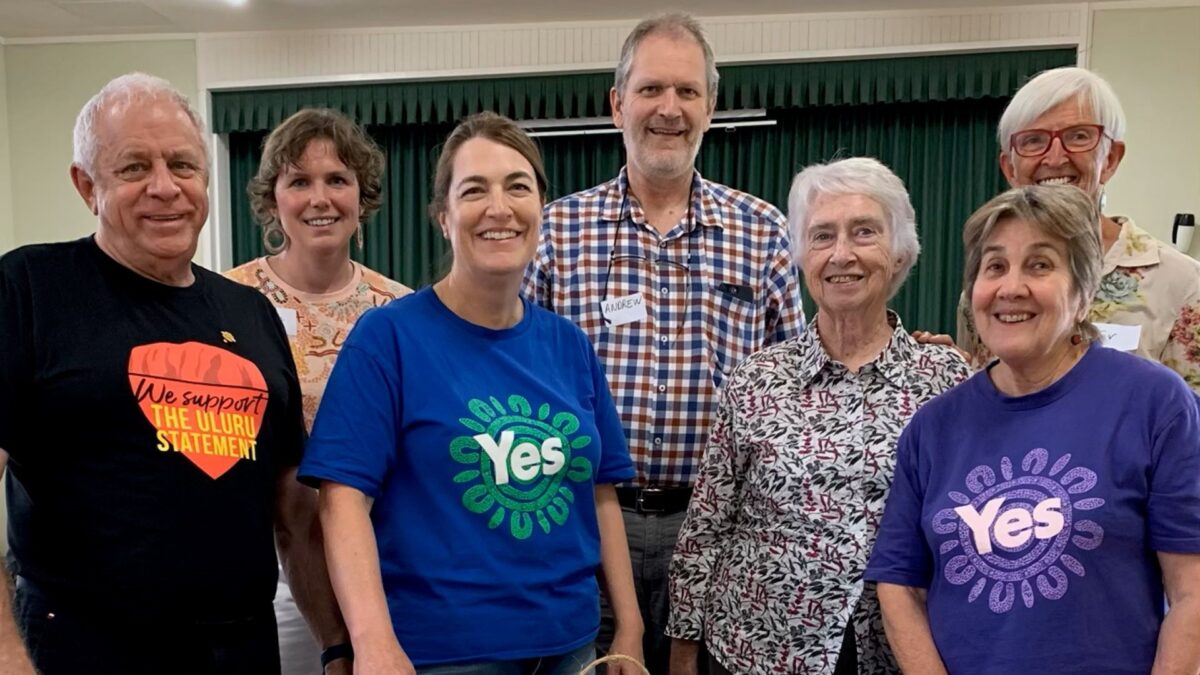Supporters still passionate about First Nations issues in post-referendum world


Uluru Dialogue Director Geoff Scott (far left) with the Shoalhaven Post-Referendum Debrief and Refocus Workshop group. (Image credit: Supplied)
The Voice Referendum has been run and done, however, Uluru Dialogue Director Geoff Scott, who has been taking part in wrap-up events across New South Wales, has been excited by Aussies’ ever-burning commitment to remain involved in First Nations’ peoples’ advancement.
“After the referendum, it has been important to us, as the Uluru Dialogue, to get out to as many of our supporters as possible who put in so much time and effort in backing what we were doing; people who really believed in the referendum and how it would make for a better Australia,” Mr Scott says.
“I’ve since been to a couple of post-referendum events and conferences in Berry in NSW, Ulladulla and Nowra. I’ve also taken part in a few politics in the pub events in Sydney.
“Events like these are organised by interested community groups and by people who are - even after showing their support for us in the referendum - still not content with doing nothing; they want to continue to support First Nations people. And they’re wanting to find out and learn how they can do that.
“The really interesting manta from all of that is that they’re saying, ‘It’s not up to Aboriginal people, it’s up to us.’”
This weekend, Mr Scott is off to the South Coast tourist township of Ulladulla to take part in an event hosted by the Shoalhaven Post-Referendum Debrief and Refocus Workshop – a group which funly refers to itself as the “Imperfect Allies”.
“They’re investigating ways in which they can activate and do positive and ongoing things to support what they see as the major issues coming out of the referendum debate - a lack of acknowledgement, the fact that history hasn’t played a part in the culture of their community, nor has it been told,” Mr Scott said.
“They’re looking at establishing things like museums covering Indigenous history and presence and culture, discussing place names, analysing statues and memorials within their communities and working with high school students to ensure our history is told.
“There has been a very good response to our visits by all of the various groups. These groups aren’t asking for permission for us to hold these events, they just want to make sure we’re involved.”
